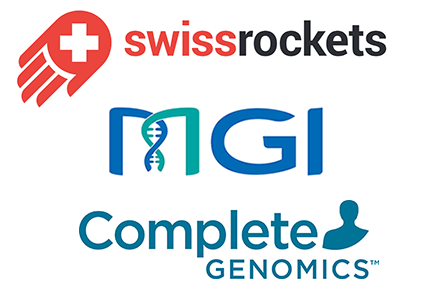High-throughput sequencing technology has developed rapidly in recent years, and has been widely used in non-invasive prenatal screening, tumor-targeted gene mutation detection, hereditary tumor detection, genetic and rare disease detection, pathogenic microorganisms and metagenomic detection, PGD / PGS However, there are many steps in high-throughput sequencing and the procedures are very complicated. From sample pre-processing and library construction to sequencing and report interpretation, there are more than a dozen links. Any problems in any of these links will affect the accuracy of the test results, which in turn affects clinical decisions.
At present, the tests carried out by many clinical laboratories in China lack a clear purpose and applicable population, and there is no clear interpretation of the test results. There is a risk of misuse and abuse. It is urgent to reach a consensus in the industry to effectively guide the clinical application of high-throughput sequencing technology.
Based on domestic and foreign relevant guidelines, standards, specifications, and expert consensus and the current status of clinical application of high-throughput sequencing technology, Beijing Clinical Laboratory Center and Beijing Medical Association Laboratory Medicine Branch led the organizations to draft the "The Beijing Expert Consensus for the Standardized Application of Technical Clinical Detection"
As the only manufacturer in China capable of mass-producing clinical-level high-throughput sequencers, MGI actively responds and participates in the writing of the "Beijing Consensus on High-throughput Sequencing''. It is believed that this will help domestic sequencers better serve clinical testing practices.
10 consensus to standardize clinical high-throughput sequencing applications
The Beijing Consensus of High-throughput Sequencing is divided into four parts, which put forward general requirements for the construction of high-throughput sequencing laboratories, and make provisions for laboratory environment, laboratory safety, laboratory personnel, reagent consumables, and equipment; it has also established clear specifications for the establishment and quality assurance of high-throughput sequencing testing processes, which covers the selection of testing items, performance verification and confirmation, establishment of standard operating procedures, testing process records, indoor quality control, indoor quality evaluation or capabilities Validation, reporting and interpretation of several aspects.
The Beijing Consensus on High-throughput Sequencing reached a total of 10 expert consensuses covering high-throughput sequencing laboratory construction, testing processes, and quality management. It has further standardized the development of clinical high-throughput sequencing applications and improved detection accuracy and Stability is of great significance to help clinical diagnosis and treatment. (Click to read the original text to obtain the full text of the `` Beijing Expert Consensus on the Standardization of Clinical Application of High-throughput Sequencing Technology for Clinical Application (First Edition General Section) ''. Some of the important consensus include:
√The laboratory should preferentially select reagents approved by the State Drug Administration. If there are no reagents approved by the State Drug Administration, LDTsreagents that have undergone comprehensive analytical performance confirmation and necessary clinical performance confirmation can be used after review.
√The high-throughput sequencing test project proposed by the laboratory must have clear clinical intended use. The test application form, result analysis, interpretation and clinical decision-making must be based on medical scientific evidence.
√Before using NMPA approved reagents for clinical high-throughput sequencing testing, the laboratory should perform analytical performance verification. If LDTsreagents are used, the analytical performance should be based on the performance verification of the sequencing platform and established bioinformatics process Confirmation and confirmation of necessary clinical performance (clinical effectiveness and clinical usefulness).
√The laboratory shall record the entire testing process to ensure the traceability of the quality control parameters of the testing methods, instruments, reagents, operators, key links and deviations from the sop.
Guiding significance for the entire industry
The High-throughput Sequencing Beijing Consensus covers the National Health and Medical Commission's Clinical Testing Center, Beijing Clinical Testing Center, Peking University People's Hospital, Cancer Hospital of Chinese Academy of Medical Sciences, China Institute of Food and Drug Testing Institute for In vitro Diagnostic Reagent Testing, and Chinese Medicine The Peking Union Medical College Hospital of the Chinese Academy of Sciences, as well as the leaders and experts of the top companies in the industry, have high guiding significance for the clinical application of high-throughput sequencing in the industry.



 Sequencer Products: SEQ ALL
Sequencer Products: SEQ ALL















 Technologies
Technologies Applications
Applications Online Resources
Online Resources Data Bulletins
Data Bulletins Service & Support
Service & Support Global Programs
Global Programs Introduction
Introduction Newsroom
Newsroom Doing Business With Us
Doing Business With Us Creative Club
Creative Club













